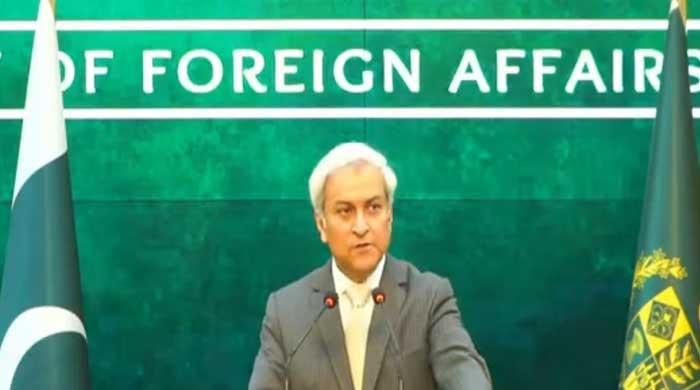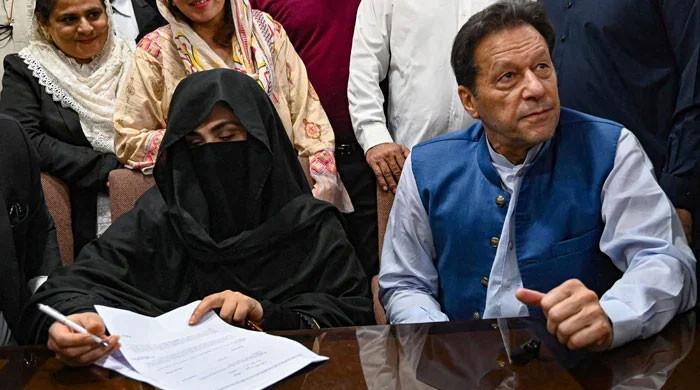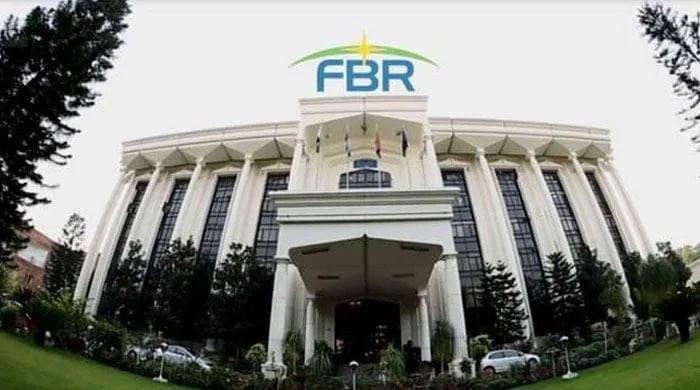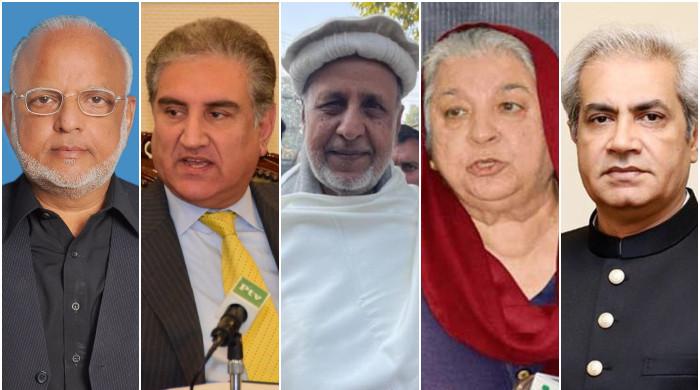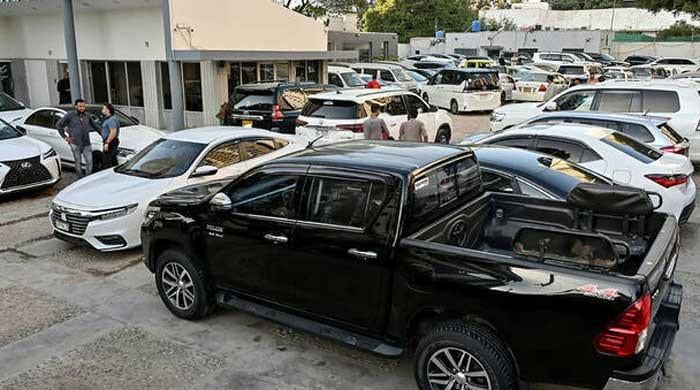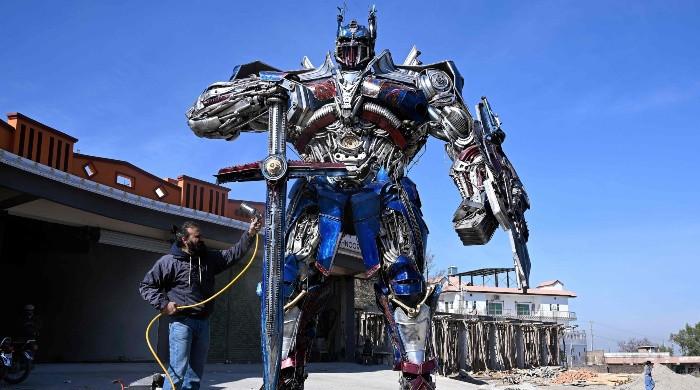9 startling statements made by Justice Khosa in Panama verdict
Justice Saeed Ahmed Khosa’s 194-page dissent note in the Panama Leaks verdict details his honest viewpoint regarding the case hearing
April 20, 2017
Justice Saeed Ahmed Khosa’s 194-page dissent note in the Panama Leaks verdict details his honest viewpoint regarding the case hearing. Here, are few of the most powerful statements made by the judge:
Court won’t shy away from setting a ‘dangerous precedent’
He also writes about argument that disqualification of an elected representative “shall set a dangerous precedent".
"This argument… overlooks the fact that…the present petitions had been entertained by this Court in the backdrop of an unfortunate refusal/failure on the part of all the relevant institutions in the country like the National Accountability Bureau, the Federal Investigation Agency, the State Bank of Pakistan, the Federal Board of Revenue, the Securities and Exchange Commission of Pakistan and the Speaker of the National Assembly to inquire into or investigate the matter or to refer the matter to the Election Commission of Pakistan against respondent [Nawaz Sharif].
….now this Court cannot turn around and shy away from deciding the matter simply because it may set a dangerous precedent.”
Politics trumps “accountability”
He writes about the “detailed and documented report prepared and submitted by Mr. A. Rehman Malik in September 1998 in his capacity as an Additional Director, Federal Investigation Agency, Islamabad.” The report tends to establish the money trail through which Nawaz Sharif purchased his properties in the names of his children.
I understand that a lot of effort must have gone into digging out the relevant details. I have, however, felt agonized by the fact that the matter had later on been hushed up, brushed under the carpet and never pursued by any quarter…..
We have been informed that the same Mr. A. Rehman Malik who had prepared the above mentioned report had later on joined politics and had served the country as the Minister for Interior, Government of Pakistan for many years but he never took any step to pursue the matter…. It appears that politics had trumped accountability and discretion had the better of public interest."
Contradictory statements by Nawaz Sharif, his counsel
“Although it had specifically and repeatedly been said by respondent No. 1 [Nawaz] on the floor of the National Assembly….that the entire record relevant to the setting up and sale of the factories in Dubai and Jeddah was available and would be produced whenever required yet when this Court required Mr. Salman Aslam Butt, Sr. ASC, the then learned counsel for respondent No. 1, on December 07, 2016 to produce or show the said record he simply stated that no such record existed or was available and that the statement made by respondent No. 1 in the National Assembly in that respect was merely a “political statement”!”
Qatar investment loses its ‘credibility’
“That story about investment in the real estate business of Al-Thani family in Qatar has taken many turns in this case and has, thus, lost its credibility.”
Earlier, he writes that first statement from the Qatar prince “failed to disclose how the requisite funds were transferred by respondent No. 1’s [Nawaz] father from Dubai to Qatar. He had not referred to any date or place of the transactions mentioned. He had failed to state about any document executed in furtherance of such transactions and he had also omitted to mention as to how the relevant funds were dealt with. No detail of the real estate business of Al-Thani family in Qatar was provided nor any record of investment in such business by respondent No. 1’s father had been referred to.”
‘Respondent has not been honest to the nation’
“Constitution is relevant only to a criminal case which the present proceedings are not. Even otherwise, no such protection has been claimed by respondent No. 1 [Nawaz] before us probably realizing that claiming such protection impliedly acknowledges criminality in the matter. There may be many definitions of the word ‘honest’ but deliberate withholding or suppression of truth is not one of them and the same is in fact an antithesis of honesty. I am, therefore, constrained to declare that respondent No. 1 has not been honest to the nation, to the representatives of the nation in the National Assembly and to this Court in the matter of explaining possession and acquisition of the relevant four properties in London.”
Sharif family's ‘strategy’ to ‘conceal relevant facts”
“Instead of giving any straight answer the learned counsel for respondent No. 1 [Nawaz] maintained before this Court that the said respondent had nothing to do with acquisition of the relevant properties in London and the Court should ask the said respondent’s children about those properties… When the Court asked the learned counsel for respondents No. 7 and 8 [Hussain and Hassan Nawaz respectively] about acquisition of the relevant properties he simply maintained that such a question could satisfactorily be answered only by the said respondents’ grandfather who had died in the year 2004! Upon receipt of such responses from the learned counsel for respondents No. 1, 6, 7 and 8 the Court had repeatedly observed that the ‘strategy’ adopted by the said respondents to conceal the relevant facts from the Court…”
Sharif family’s explanations were ‘elusive and evasive’
“The facts of the case show, and show quite clearly, that very valuable properties had statedly been acquired by respondent No. 1’s children and many businesses had been set up and run by them in different parts of the world since the time when they had no independent sources of income and respondent No. 1 and his children have miserably failed to even prima facie account for the same. No definite source of income has been disclosed, no bank account has been identified, no receipt has been produced, no money trail has been established and no document relating to transfer of interest in any of the companies or properties has been supplied by them and all their explanations in respect of businesses and assets are elusive and evasive at best. Apart from that the shifting stands taken, the divergent and contradictory explanations advanced and the prevarication and concealment resorted to by them at different stages of the matter unmistakably point towards a guilty mind and conscience….”
‘Fantastic and unbelievable’ stories about London properties
"Concluding the discussion about the relevant four properties in London I hold that all the varying and ever changing stories about acquisition of the said properties advanced by the children of respondent No. 1 [Nawaz] have remained un-established from the flimsy, sketchy and inadequate record relied upon by them and such stories have even otherwise been found by me to be fantastic and unbelievable. We had been informed that Mr. Hussain Nawaz Sharif, respondent No. 7, had studied in England between the years 1992 and 1996, Mr. Hassan Nawaz Sharif, respondent No. 8, had studied in that country between the years 1994 and 1999 and the relevant properties had admittedly come in possession of respondent No. 1 and his family between the years 1993 and 1996. Two young students in occupation of four residential properties in one of the most expensive areas of London was surely extraordinary. Admittedly those two boys were not earning hands at that time and they had no independent source of income and were, thus, dependents of their father, respondent No. 1, till then. Instead of telling the truth the children of respondent No. 1 decided to hide behind divergent and conflicting stories which in the financial world were nothing but fairytales. All such stories and explanations, including those of investment, placement or retention of some funds belonging to their grandfather namely Mian Muhammad Sharif with Al-Thani family of Qatar in the year 1980 and settlement of such investment, placement or retention in the year 2005, are, therefore, categorically and unreservedly rejected by me."
“Power of literature for commenting upon a reality”
The judge also made many literary and philosophical references in his dissent note in the judgment.
From starting by quoting an epigraph in Mario Puzo’s The Godfather, “Behind every great fortune there is a crime” by Honoré de Balzac, the judge also includes quotes from Republic by Plato, Christopher Marlowe’s Tamburlaine and old bard Shakespeare’s Merchant of the Venice.
“The precedent to be set by this Court through the present petitions should in fact be a warning to all those rulers who try to subjugate all the organs of power, enslave the institutions of accountability and then in a false sense of security and invincibility proclaim as Christopher Marlowe’s ‘Tamburlaine’ did by boasting that ;
“I hold the Fates bound fast in iron chains,
And with my hand turn Fortune's wheel about,
And sooner shall the sun fall from his sphere
Than Tamburlaine be slain or overcome.”
Mentioning Merchant of Venice, he then writes “oppressive judicial decree regarding payment of money by another Bassanio beseeched the Duke as follows:
“Yes, here I tender it for him in the court;
Yea, twice the sum: if that will not suffice,
I will be bound to pay it ten times o'er,
On forfeit of my hands, my head, my heart:
If this will not suffice, it must appear
That malice bears down truth. And I beseech you,
Wrest once the law to your authority:
To do a great right, do a little wrong,
And curb this cruel devil of his will.”
…Fortunately for me, there is no wresting the law to my authority and no little wrong is to be done by me to do a great right in the matter of issuing a declaration against respondent No. 1 [Nawaz Sharif].”




